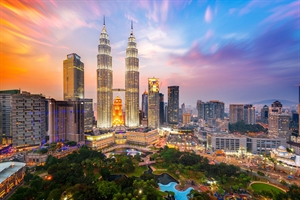South East Asia, with its vibrant cultures, stunning landscapes, and diverse wildlife, is a dream destination for many. However, it’s crucial to be aware of the potential health risks associated with travel to this region, whether you are backpacking in Thailand or taking in the city life of Singapore, or relaxing on a luxury break in the Maldives.
Preparing for your trip to South East Asia
Before embarking on your South East Asian adventure, it’s essential to take proactive steps to protect your health. By consulting a travel health specialist and following preventive measures, you can minimize your risk of illness and enjoy a worry-free trip.
Consult a travel health specialist before you go to Southeast Asia
To make an appointment with Global Travel Clinics, use our clinics page.
Seeking advice from a healthcare professional well in advance of your trip is strongly recommended. They can assess your individual needs and recommend appropriate vaccinations and preventive measures.
Your usual healthcare provider can help you ensure you’re up-to-date on routine vaccinations like measles, mumps, rubella, tetanus, diphtheria, pertussis, polio, and influenza.
Health concerns in Southeast Asia
You may be exposed to diseases in Southeast Asia that aren’t common in the US. These include:
Hepatitis A and B: These liver diseases are spread through contaminated food and water or blood contact. Vaccination against hepatitis A may be recommended for some destinations.
Typhoid fever: This bacterial infection is transmitted through contaminated food and water. Vaccination is effective against typhoid.
Japanese encephalitis is a viral disease transmitted by mosquito bites, particularly during the rainy season. Vaccination is recommended for long-term travelers and those visiting rural areas.
Rabies is a fatal viral disease transmitted through the bite of an infected animal. Vaccination is against rabies is recommended to some travelers engaging in outdoor activities.
Malaria, a mosquito-borne disease, is prevalent in certain regions of Southeast Asia. Preventive measures, including antimalarial medication and mosquito avoidance, are essential. Learn more about malaria from the CDC.
Dengue Fever is a viral infection transmitted by mosquitoes. There is no vaccine, so prevention relies on mosquito bite avoidance.
Practice food and water safety when in Southeast Asia:
Drink bottled water or water that has been boiled and cooled.
- avoid ice in drinks, unless it’s made from bottled water
- choose cooked food that is hot and fresh
- avoid raw fruits and vegetables that cannot be peeled
- be cautious of street food
Protect yourself from insect bites
Insect bites are painful, and can transmit some diseases that are not vaccine preventable. So we would recommend avoiding getting bitten. Here are some steps you can take:
- use insect repellent containing DEET
- wear long sleeves, long pants, and socks, especially during dawn and dusk when mosquitoes are most active
- stay in air-conditioned accommodations with screens on windows and doors
Methanol poisoning in South East Asia
Last month there was a mass poisoning incident in Laos, where a number of tourists died after drinking methanol. The tasteless, odorless substance is used by counterfeiters in the manufacture of replicas of branded alcohol. Even a small amount of methanol can cause death or serious illness.
Seek emergency medical care immediately if you think you or someone you are with has consumed methanol.
Tourists should take care what drinks they consume, and accept drinks only from bars and hotels that have a license.
Travel insurance for your trip to South East Asia
Comprehensive travel insurance is a must for people visiting South East Asia to cover medical emergencies and evacuations. Your usual health insurance may not provide coverage outside the US.
By following these guidelines and consulting with a healthcare professional, you can significantly reduce your risk of illness and enjoy a safe and memorable trip to Southeast Asia.
Remember, your health is your most valuable asset. Prioritize it and travel responsibly.


Book Online